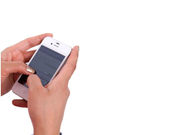Only one website of 20, three apps of 33 were able to predict precise fertile window
THURSDAY, June 16, 2016 (HealthDay News) — Most fertility websites and applications (apps) are not accurate for predicting the fertile window, according to a study published in the July issue of Obstetrics & Gynecology.
Robert Setton, M.D., from Weill Cornell Medical College in New York City, and colleagues conducted a descriptive study to examine the validity of fertility websites and apps. They assessed the top resulting free websites and electronic apps downloadable to a cellular phone that provide calendars for fertility and ovulation prediction; the predicted date of ovulation and fertility window generated were compared with an actual estimated date of ovulation and a fertility window. Data were collected from 20 websites and 33 apps.
The researchers found that one of the websites and three apps were able to predict the precise fertile window.
“Websites and electronic apps used by the general public to predict fertile windows are generally inaccurate, although the clinical effect of this inaccuracy is unknown. Although they all include the most fertile cycle day, the range of the fertility window varies widely,” the authors write. “Patients who are trying to conceive with the assistance of calendars generated from websites and electronic apps should be counseled on the inaccuracy of these modalities.”
Full Text (subscription or payment may be required)
Copyright © 2016 HealthDay. All rights reserved.








